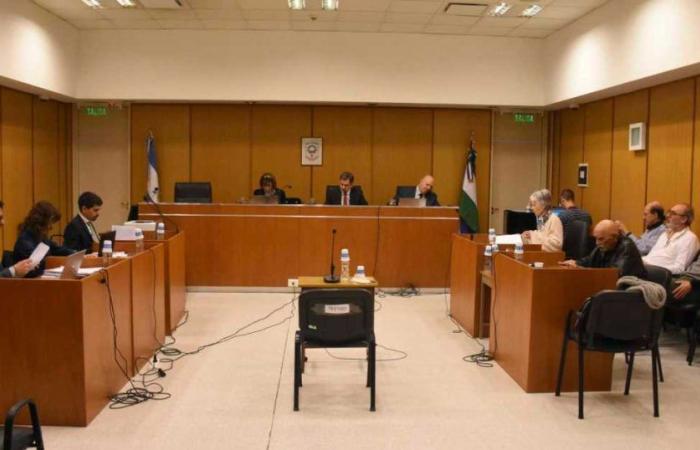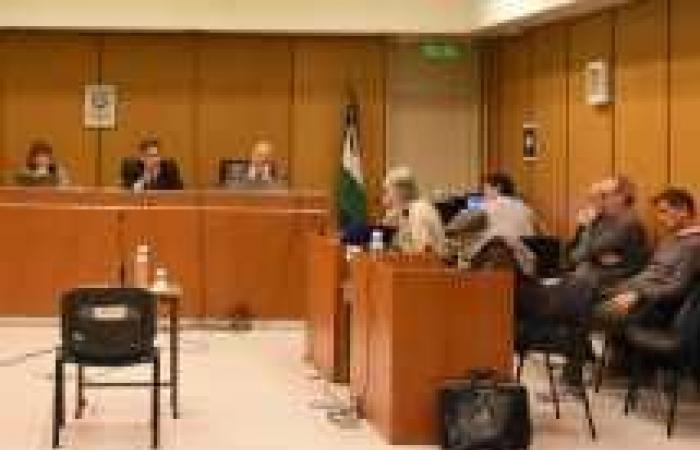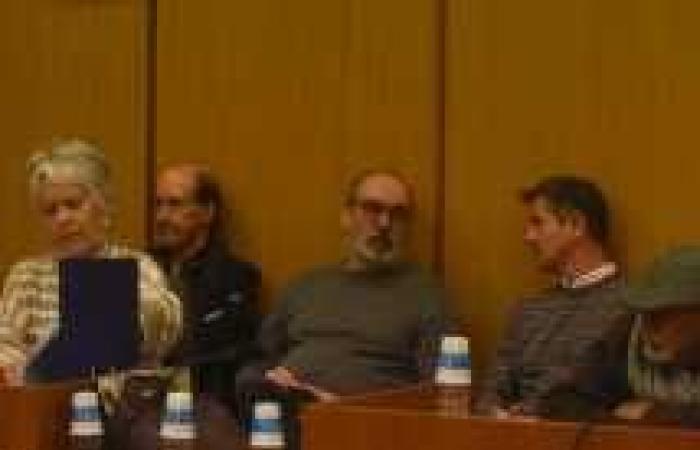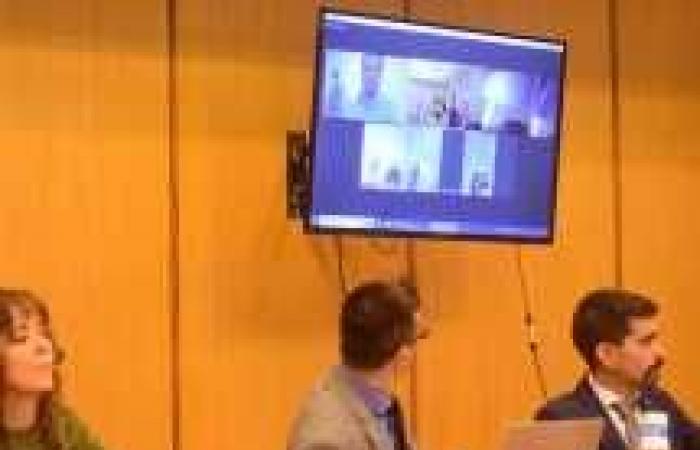The four pharmacists convicted in Roca for the million-dollar Ipross scam face requests for between 3 and 12 years in prison since Thursday.
“This was studied. It was not something improvised. “It required an organization,” said the chief prosecutor, Teresa Giuffrida, when she detailed the aggravating factors she found regarding the conduct displayed by Sandra Fasano, Fabio Caffaratti, Rodolfo Mastandrea and Raúl Mascaró.
That planning “bordering on criminal association”the extent of the damage caused (between 2013 and 2019), the professional training and the high responsibility that the four accused had both in the College of Pharmacists and in the Argentine Pharmaceutical Confederation, in addition to the multi-million dollar amount of the damage caused, were among the elements that led the representatives of the Public Ministry to request high sentences, within the range of 2 to 12 years established for the case.
Giuffrida explained that, since the real concurrence between the events has been proven, Those convicted could have faced sentences of up to 50 years in prison, the limit provided for by the Penal Code, or they could have taken into account the jurisprudence that allowed them to start from the middle point, to demand 26 years of imprisonment, but they opted for a “significantly lower” scale.
That way, He asked for 11 years and six months for Fasano; 10 years for Caffaratti, 8 and a half years for Mastandrea and 7 years for Mascaró. He also demanded a six-year special disqualification from practicing pharmacy and fines of 90,000 pesos.
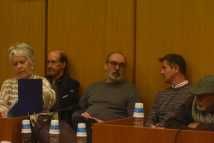
This descending order is related to the number of acts committed to each one – Fasano 574, Caffaratti 249, Mastandrea 122 and Mascaró 107 – in addition to the amount of damage that each one caused to Ipross.
The prosecutor defended the accounting expertise that updated the figures and denied that it was an indexation, which is expressly prohibited, highlighting that the sentences were not for the money they received from social work but for the illegal maneuvers deployed in the drug sales system.
Giuffrida also highlighted the direct consequence for Ipross as an aggravating factor, because “this scam affects what one has to buy medicines.”
“The fact that the loss represents 45% of the amount invoiced by all pharmacies in the province in one year is significant,” he said.
And he also assured that “There are several indirect victims”including “all members of the social work, the College of Pharmacists and those members whose data was used to commit these criminal acts.”
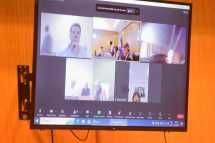
After the prosecution, the representative of the State Attorney’s Office, Federico Rosbaco, spoke.
The complainant adhered to the concepts of the Public Prosecutor’s Office, but had a different consideration regarding the penalties that should be applied to the four pharmacists. Based on “the magnitude of the damage,” he directly asked for 12 years for everyone, in addition to the disqualifications and fines requested in the previous shift.
The defense arguments
Among the defenders, the first argument was made by Carlos Vila, Caffaratti’s representative.
“I thank you for your humanity, but here you start from the minimum,” he said ironically to the prosecutor Giuffrida, in relation to the decision not to take as parameters the extremes of 50 years or the Briones antecedent.
Vila questioned the prosecutors and the plaintiff for not giving explicit and well-founded arguments about those 12-year limit and said that “if the principle of proportionality exists” and “In light of the background, it is appropriate to start from the legal minimum.”
His specific request was three years of suspended prison for Caffarattifollowing the pattern of the abbreviated trial that they proposed months ago, without success.
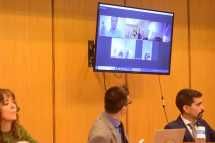
Patricia Espeche was the last to speak, insisting on criticizing the other parties for not saying where they started from to consider the scale of 2 to 12 years of prison fair, in addition to exalting the personal qualities of his three clients.
About that, he said that “Judges are at a crossroads” and that what happened “prevents them from passing sentence.”
He then refuted the classification of “indirect victim” for the College of Pharmacists, stating that, in reality, the entity was “the messenger to bring information to the prosecutors”in what was constituted as an “outsourced investigation.”
Regarding Mascaró, he highlighted his “regular and normal life”, something far from eventual enrichment; Mastandrea – following the words of a witness – called him “be of light” and about Fasano he warned – also on the basis of the diagnosis presented by a doctor – that he has “Death risk”.
“Where do they want to take her?” he asked, recalling that during the process he suffered serious heart problems.
The sentence of the court that tried them for exactly one year will be announced next Thursday, in the provincial courts of Roca.

